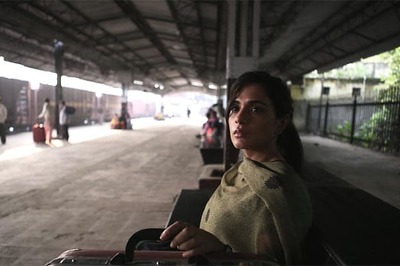
views
Very few readers will dispute the talent that R K Narayan was. V. S Naipaul has written about how his personal image of India was entirely shaped by reading R K Narayan’s books and all that happens in Malgudi, the fictional small-town in South India that the author set his stories in. His tales came with a parochial delight, yet encompassed a world of human emotions and characters. This was enchanting as much as it was universal in appeal.His trilogy, 'Malgudi Days', 'The Bachelor Of Arts' and 'The English Teacher' which are largely autobiographical offer some of the most poignant and wonderful narratives. His stories bristle with the nestling beauty of warm domestic scenes. His characters grapple with seemingly trivial concerns, but to them, these are profoundly impacting and life-altering things. ' The Dark Room '(1938) is about a dominant, excessively critical and self-centered husband, Ramani living with his wife Savitri and three children.The first scene sees him criticising everything that his wife serves him on the table. He curses the cook and freely taunts his wife. At work, he takes more than a little fancy to his junior called Shanta Bai. She is pretty and recently separated from her husband. Ramani is taken in by her charms and goes out of his way to help her. On the way from his golf club, he regularly starts spending time with her. When Savitri hears of it, she is unable to bear the humiliation. She confronts her husband who dismisses her objections. Desolate at being taken so entirely for granted, she raises her voice, and then gets determined to leave the house. She wants to take the kids along, but Ramani stops her harshly. “Don’t touch them or talk to them. Go yourself, if you want. They are my children,” he shouts.The blatant disregard shown causes such depression in her heart that she wanders alone in the street and even plunges herself in the river. But overcome by fear, she shouts out for help. A blacksmith by day and burglar by night saves her. He brings along his wife, Ponni who tries to befriend Savitri. But such a madness seizes Savitri that she refuses to eat anything not earned by herself. She gets so obstinate that she starts working at a temple as a cleaner for a cantankerous priest. But in a day she realises the impracticality of her choice and returns home, though a part of her is dead now.There is no doubt that Narayan’s sympathies are with Savitri, though he doesn’t make a grand feminist statement by making her walk-out forever on her marriage. Narayan, above all, much in the vein of say a Jane Austen, was a realist and understood the limitations of people in their context and worlds. Narayan’s characters rebel against a traditional and regressive society. Earlier in his novel, 'Bachelor Of Arts', the young protagonist is sickened at his inability to get the girl he wants and turns a monk for a while. But quickly realising the narrowness of his world, comes back into the mainstream. In 'The Dark Room', Narayan quite clearly feels a deep anguish at the wife being treated so shabbily and leaves no opportunity to portray the ugliness and shocking selfishness of the husband’s character.The book is less of a novel and more of a novella. Narayan is effective in his portrayal of Ramani, a vain, sarcastic, self-serving man. Also, the part where Savitri leaves and encounters a different world is poignant, but the book as a whole has a few weaknesses. It is not as lush in its narrative, the story runs rather quickly, and doesn’t delve too much into the complexities. Ramani’s fling with his junior is awkwardly handled, perhaps because Narayan was writing about an episode he may not have experienced or seen first hand.Yet, the novel as a whole has some epiphanic moments. It gives psychological insight into human characters, and throbs with a natural goodness so unique to R K Narayan’s works.


















Comments
0 comment